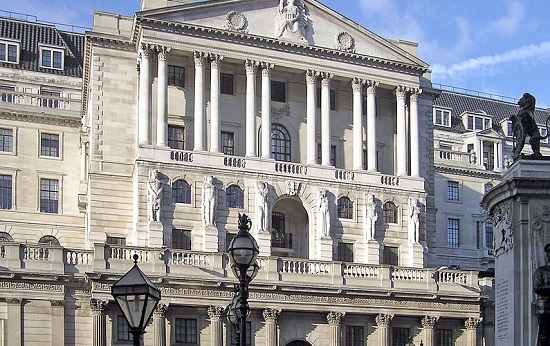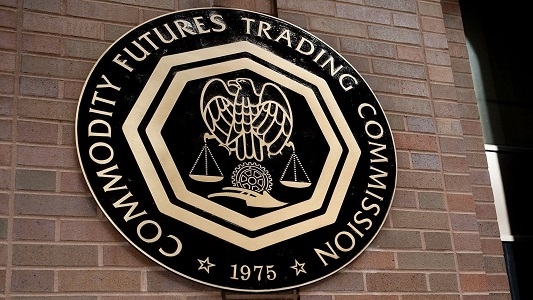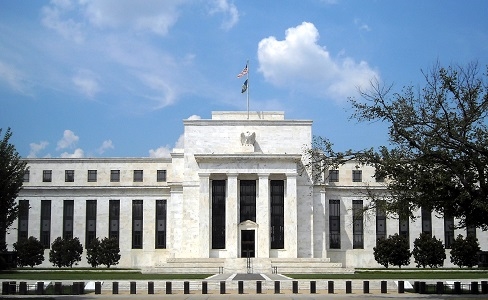Regulation and the US election: what’s in store?

Some 70 years have passed since the Democrats last registered back-to-back-to-back presidential wins, but with economic data continuing to tick upward and the markets holding steady, fortune would appear to favor a three-peat for the Dems come the eighth of November.
As anyone familiar with US politics knows, traditional touchpoints like job growth or rising real-estate values don’t always presage a likely victor when non-incumbents square off. Adding to the ambiguity is the current political climate, about as polarized as any since 1968 when generational, cultural and racial divides led to a historically fractured electorate.
On paper anyway, Democratic presidential nominee Hillary Rodham Clinton looks very much like a shoo-in, the standard-bearer of a party whose outgoing commander-in-chief Barack Obama currently ranks favorably among 58 percent of the public (according to a recent ABC News- Washington Post survey), and under whose watch unemployment has been halved (4.9 percent) while stock indices have nearly tripled. Yet as of this writing barely a few percentage points separate Clinton from her unlikeliest of Republican rivals, the voluble Donald J. Trump.
For his part, Trump has, to date, managed to successfully sidestep a number of presidential prerequisites, including, among other things, the need to follow historical campaign etiquette. “He just says what he thinks, and to some degree it has worked for him,” remarks Nicholas Colas, chief market strategist at Convergex, the New York-based global brokerage firm. Whether or not it nets Trump the big prize remains to be seen; nevertheless, says Colas, “he has outlined an agenda that, like it or not or think it erratic, at least comes from a genuine place. And that has resonated with voters.”
While the headline numbers may appear pro-Democrat, as a candidate “Hillary Clinton isn’t nearly as popular as President Obama was, particularly the first time around, which has made it a bit more difficult to pass the baton,” Colas adds. “We also have a very polarized and fractured electorate, with priorities that vary based on demographics as well as party affiliation. And of course there is still the long shadow of the financial crisis as measured by continued feelings of economic dislocation and insecurity, income inequality, as well as the proper role of the Federal Reserve and the financial system in general.”
Regulatory Crossroads
Facing off against Wells Fargo CEO John Stumpf during a recent Senate Banking Committee hearing, Massachusetts Sen. Elizabeth Warren gave a good indication as to how Democrats as a group are likely to respond to any institution that dares step out of line going forward. “You should resign,” Warren told Stumpf point blank, after the banking giant was forced to jettison over 5000 employees and fined $185m for engaging in illegal "cross-selling" consumer-marketing activity.
Warren, who conceived and currently serves as special advisor to the US Consumer Financial Protection Bureau, remains one of Washington’s most consistent regulatory hawks, and while she and her like-minded peers could find the going more difficult under a Trump administration, such scrutiny may in fact intensify should Secretary Clinton secure the Oval Office.
“The posture towards the financial-services industry—including not just big banks but, as we’ve seen, consumer-banking practices—could be one of the policy areas that is subject to some of the most thorough intra-party debate,” remarks Ralph Whitehead, longtime political analyst and professor of journalism at the University of Massachusetts in Amherst. “Certainly Senator Warren—and, of course, Senator Sanders—have made clear their intentions to remain vigilant, and may be particularly emboldened if the Democrats win back the Senate, including trying to move the President in their direction.” Such activism is less likely to occur should the GOP retain its Senate majority, adds Whitehead, and could instead give way to a more moderate approach to maintaining financial order.
Like his predecessor Mitt Romney in 2012, candidate Trump’s lengthy list of proposed changes includes scrapping the Democrats’ signature piece of financial legislation, the Dodd–Frank Wall Street Reform and Consumer Protection Act, arguing that the bill’s sweeping restrictions hampers consumers’ ability to borrow (somewhat paradoxically, Trump has simultaneously favored reinstating the 1933 Glass-Steagall Act, however).
But perhaps even more so than the last time around, it is unlikely that the winner will be able to significantly alter Dodd-Frank, Volker or similar measures, particularly those aimed at ensuring sufficient capital and liquidity thresholds for larger institutions.
“There is a lot of interest in loosening capital restrictions on smaller community banks with the goal of helping out rural economies, so we could conceivably see some movement in that regard,” notes Colas. “Whereas the appetite for easing existing regulations on large banks is literally zero. The Occupy Wall Street movement was, in hindsight, the leading edge of what has become a very mainstream focus on keeping the financial industry in check. There is a universal frustration that has its roots at the start of the financial crisis and the fact that there were no criminal investigations at the time, and which has since helped fuel the notion that the financial-services business is generally far too active in politics.”
Uncharted Territory
If nothing else, the unprecedented anti-establishment tenor of this year’s race has helped render old party loyalties virtually obsolete, in turn making it more difficult to gauge the real mood of an increasingly non-affiliated and heavily partisan electorate.
It has also enabled the likes of candidate Trump to blur the lines as never before. While the Republican nominee has seized upon any number of go-to GOP talking points as he sees fit—from cutting taxes to bolstering defense spending—his populist messaging, oddly enough, puts him closer to progressive adversaries such as Senators Elizabeth Warren and former Democratic presidential candidate Bernie Sanders than his own party’s hard-right stalwarts.
“Strange as it may seem, Donald Trump and Elizabeth Warren have a lot of overlap in their Venn Diagrams,” offers Colas. “That is, to some degree both speak to the same base of disenfranchised Americans who don’t believe the system really works for them. I think they are more kindred spirits than either one would like to admit.”
Taking into account the various crossover elements at work, at this juncture there appear to be any number of plausible presidential/congressional outcomes once the dust settles on Nov. 8. One scenario, in which the Democrats win the presidency but still face a GOP-led congress, finds Washington pretty much where it is right now, with one notable exception. “Trump’s anti-establishment message will have been repudiated, and the result will be business as usual in Washington, though with a somewhat friendlier relationship between the White House and Congress,” says Colas. “At the moment there are a number of establishment Republicans who would likely view a Clinton victory as escaping a near-death experience—and therefore would conceivably show their gratitude for getting a second chance by becoming more conciliatory post-election.”
“Up until now a lot of the Democrats’ confidence around winning back the Senate, and at least portions of the House, has been based on the assumption that Trump would lose by a landslide and take a lot of GOP seats with him,” says Whitehead. Even with the new reality of a competitive Trump setting in, many observers still view a Democratic senatorial shift as the most likely outcome, says Whitehead.
Perhaps even more intriguing is the prospect of a Trump victory, coupled with an unchanged GOP congressional majority. Whitehead frames that picture in stark terms. “If Donald Trump wins, we wake up the next morning to an entirely new political universe in America,” says Whitehead. “On the one hand he promises change in a way that Hillary Clinton cannot, but on the other his change could take the form of enormous uncertainty. And that is a widely acknowledged problem with Trump the candidate.”
Whether or not Wall Street has already priced in a possible Trump win is uncertain; nevertheless, investors are likely to keep a close watch on the polls should the race remain tight to the finish. A vocal Fed critic, Trump has already gotten the Street’s ear with comments about deposing current Fed head Janet Yellen and, oddly enough, appearing to support higher interest rates.
“Trump has accused the Fed of playing partisan by not raising rates in an election year,” says Colas. “I mean, it makes sense from a campaign standpoint—the Fed is, after all, wildly unpopular and therefore a convenient punching bag. But does that mean as president Trump would want a Fed that is more aggressive in terms of rate hikes? That’s kind of a spicy move—sure, you could probably find a Fed chairman who’s willing to take rates to 3 percent, but do you really want the dollar to go to par against the Euro, and have exporters become less competitive? That’s hard to believe, particularly coming from someone with a manufacturing-oriented investment platform.”
Found this useful?
Take a complimentary trial of the FOW Marketing Intelligence Platform – the comprehensive source of news and analysis across the buy- and sell- side.
Gain access to:
- A single source of in-depth news, insight and analysis across Asset Management, Securities Finance, Custody, Fund Services and Derivatives
- Our interactive database, optimized to enable you to summarise data and build graphs outlining market activity
- Exclusive whitepapers, supplements and industry analysis curated and published by Futures & Options World
- Breaking news, daily and weekly alerts on the markets most relevant to you




